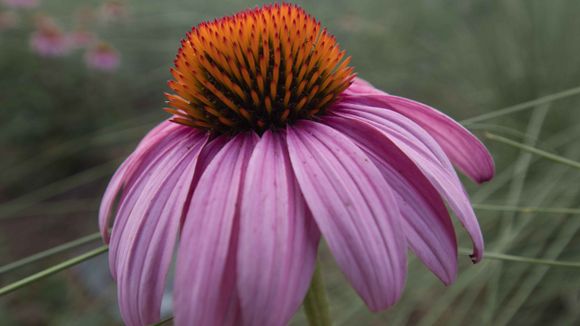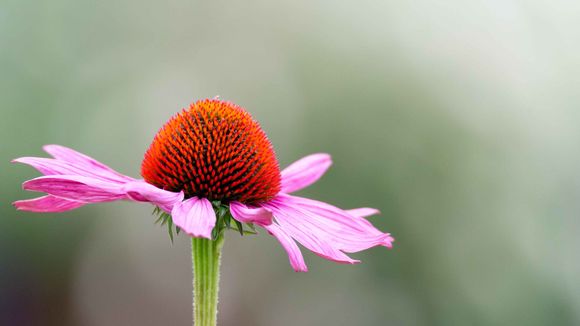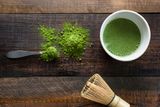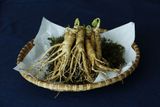What is echinacea?
The echinacea plant, also known as American echinacea or purple echinacea, is a wild flowering herb known for its medicinal properties based on its traditional use. [ref. 1] Echinacea originated in North America and is recognizable by daisy-like flowers, usually purple, around a spiny, cone-like center. [ref. 2] The term 'echinacea' actually refers to genera of plants and several species of this family, including purpurea and angustifolia, which are distinguished by their content of alkylamides (considered as active ingredients).
Originally used by native Indians, echinacea has been used as a traditional herbal remedy since the 18th century for a number of conditions, such as coughs and colds, snakebites, burns, anthrax infections, and minor wounds. It has also been reported that echinacea root can be chewed to relieve toothache pain and throat infections.
The three types of echinacea used in herbal remedies and dietary supplements are: [ref. 3]
- Echinacea purpurea (Echinacea purple) - the most widely used and popular type of echinacea;
- Echinacea pallida (Echinacea palida);
- Echinacea angustifolia (Echinacea angustifolia).
What are the benefits of echinacea?
High in antioxidants
Echinacea plants are loaded with plant compounds that act as antioxidants. Antioxidants are molecules that help protect your cells against oxidative stress. Severe oxidative stress has been linked to the development of chronic diseases, such as diabetes, heart disease and many others.
Some of these antioxidants are flavonoids, chicory acid and rosmarinic acid. [ref. 4] These antioxidants are usually in higher amounts in extracts of the fruits and flowers of plants, compared to other parts, such as the leaves and root.
Echinacea for frequent colds and flu-like diseases

Echinacea is best known for its purported ability to relieve colds and flu-like infections and for helping shorten the duration of such ailments.
A 2011 review of available studies, published in the medical journal Pharmaceuticals, found that Echinacea purpurea possesses numerous beneficial effects in the treatment of viral respiratory infections, including: [ref. 5]
- Direct virucidal activity against several respiratory viruses;
- Reversal of the proinflammatory response of epithelial cells and tissues to various viruses;
- Reducing excessive secretion of mucin from cells and tissues of the respiratory tract;
- Absence of cytotoxic effects or impairment of the integrity of Echinacea tissues in cell cultures or airway tissues, at practical antiviral concentrations;
- Additional potentially positive effects on cellular gene expression.
Anti-inflammatory action of echinacea
It has also been shown that echinacea has an anti-inflammatory effect inside the body. [Ref. 6] Inflammation is your body's natural way of promoting healing and protecting itself as needed. Sometimes it can get out of control and last longer than necessary and expected. This can increase the risk of chronic diseases and other health problems.
Several studies have shown that echinacea can help reduce excess inflammation. For example, in a study in mice, echinacea compounds helped reduce important inflammatory markers and memory loss caused by inflammation. [ref. 7]
In another 30-day study in adults with osteoarthritis, taking a supplement containing echinacea extract was found to significantly reduce inflammation, chronic pain, and swelling. Interestingly, these adults did not respond well to conventional nonsteroidal inflammatory drugs (NSAIDs), but found that the supplement containing echinacea extract worked well for them.
Anticancer properties of echinacea

In vitro studies have shown that echinacea extracts can inhibit the growth of cancer cells and even cause cancer cell death.
In one in vitro study, echinacea purpurea extract and cicoric acid (naturally found in echinacea plants) were shown to induce cancer cell death. [ref. 8]
In another in vitro study, extracts from echinacea plants (Echinacea purpurea, Echinacea angustifolia, and Echinacea pallida) killed human pancreatic and colon cancer cells by stimulating a process called apoptosis, or controlled cell death. [ref. 9] This effect is believed to be due to the immunostimulating properties of echinacea and its active ingredients.
Echinacea May Help Treat Skin Problems

Research shows that echinacea plants can help treat common skin problems.
In an in vitro study, scientists found that the anti-inflammatory and antibacterial properties of echinacea inhibited the growth of Propionibacterium, a common cause of acne.
In another study in 10 healthy people aged 25-40, skin care products containing echinacea extract were found to improve skin hydration and reduce wrinkles. Similarly, a cream containing echinacea purpurea extract has been shown to improve eczema symptoms and help restore the thin protective outer layer of the skin. [ref. 10]
Potential Side Effects of Echinacea Use
Echinacea products look safe and are well tolerated for short-term use. As with any other natural remedy, there are cases of side effects that occur rarely. They can be:
- Rashes
- Itchy skin
- Hives
- Swelling
- Stomach pain
- Nausea
- Shortness of breath
However, these side effects are more common in people with allergies to other flowers, such as daisies (Leucanthemum vulgare), chrysanthemums (Chrysanthemum), calendula (Calendula), ragweed (Ambrosia) and others.
Echinacea dosage information
For dehydrated powders (including encapsulated echinacea), Echinacea purpuera is usually used and oral doses above 300 mg are taken. three times a day (900 mg daily) and 500 mg. three times a day (1500 mg daily).
Tinctures of ethanol extract from aboveground parts (leaves and stems) are used in a concentration of 2.5 ml. three times a day or up to 10 ml. Daily.
There is not much evidence as to whether these are the optimal doses and studies are so far mixed in terms of quantities due to lack of standardization.









